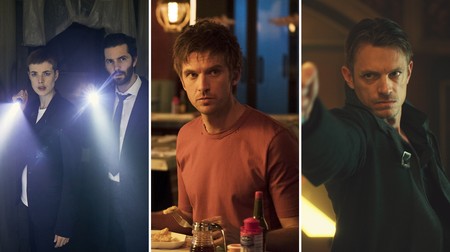‘Altered Carbon,’ ‘Legion,’ ‘Hard Sun’ Add to Genre Epics Vying for Emmys
By Christian Long
LOS ANGELES (Variety.com) – Genre shows were once a niche market, but “Game of Thrones” helped open the door for larger Academy acclaim. In its absence from Emmy eligibility last season, HBO’s other epic series, “Westworld,” filled its spot on the ballot — and earned the most nominations of the year at 22 (tied with “Saturday Night Live”). Now “Game of Thrones” is back in the running, but so are a slew of others, ranging from Netflix’s sophomore season of “Stranger Things” and freshman offering “Altered Carbon” to FX’s “Legion” and AMC’s “The Walking Dead” franchise, plus Marvel and DC superhero shows, proving genre is more popular — and prevalent — than ever.
“There is a level of escape to it,” says “” showrunner Noah Hawley, whose show is now in its second season on FX. “It’s a story that feels bigger than our day-to-day lives, which adds an element of excitement. It can become unpredictable in a way that’s interesting and exciting for people. You can heighten the drama in ways that feel like really big turns for the audience.”
Laeta Kalogridis, who steers the Netflix series “,” believes the popularity of genre TV is due to the way it allows people to tell complex stories that are still relatable. “You’re exploring much of the same themes about what it means to be human, but you’re exploring them in a particularly fertile, metaphorical field,” she says. “Even though it’s more quote-unquote fictional, you’re getting at a deeper — and oftentimes darker — truth about the human condition.”
Similarly, Hawley says the connection to the audience is at the core of genre’s success. “[With] ‘Legion,’ my first thought was it has to be a show where I could take the genre out and it would still be a great show,” he says. “Genre can’t be a crutch. It has to be a tool through which you tell a story.”
Hawley admits that genre series are still not going to be for everyone, but says they don’t have to be. “In a subscription-model world, a world where it’s not about week-to-week, it’s about the longevity of your show,” he says. “I feel it’s incumbent upon me to push the medium of what you can do and tell a story in a multiple-episode format over a number of years.”
Neil Cross, who also produced the BBC cop drama “Luther,” revisits the detective format in “Hard Sun,” setting it in a world that’s going to end in five years. “In 2018, it’s difficult to shake the conviction that the world at some point entered an uncontrolled skid,” he says.
“I think intimations of the apocalypse have been hanging round popular entertainment since the Hanging Gardens of Babylon were a shrubbery,” says Cross. “All that really changes is the nature of the apocalypse.”
Kalogridis compares today’s renewed interest to the golden age of science fiction in the wake of WWII and believes genre resonates because of the chance to see the world on a grander scale.
“[Many] of the technologies you’re looking at today … have the same feeling of completely reshaping human society,” she notes. “It’s allowing [audiences] to examine relationships with other human beings, with the environment, with the planet that we live on — the idea of expansion beyond where we are, with the idea of survival. We’re being shown branching decision trees of ways that future could play out.”

